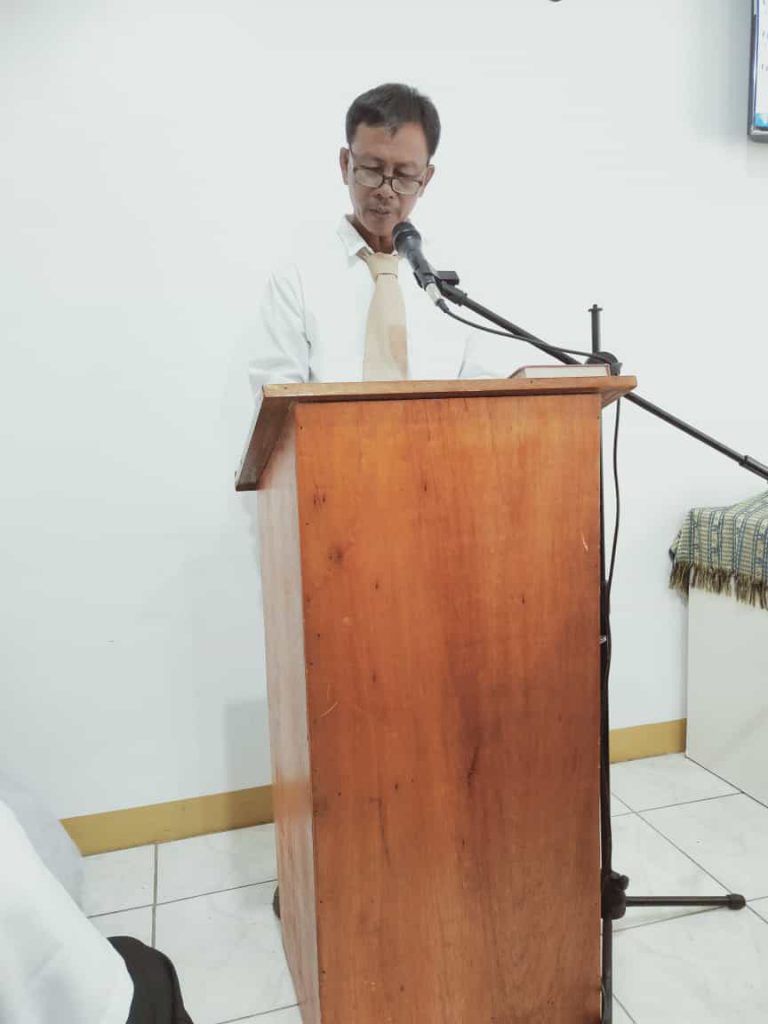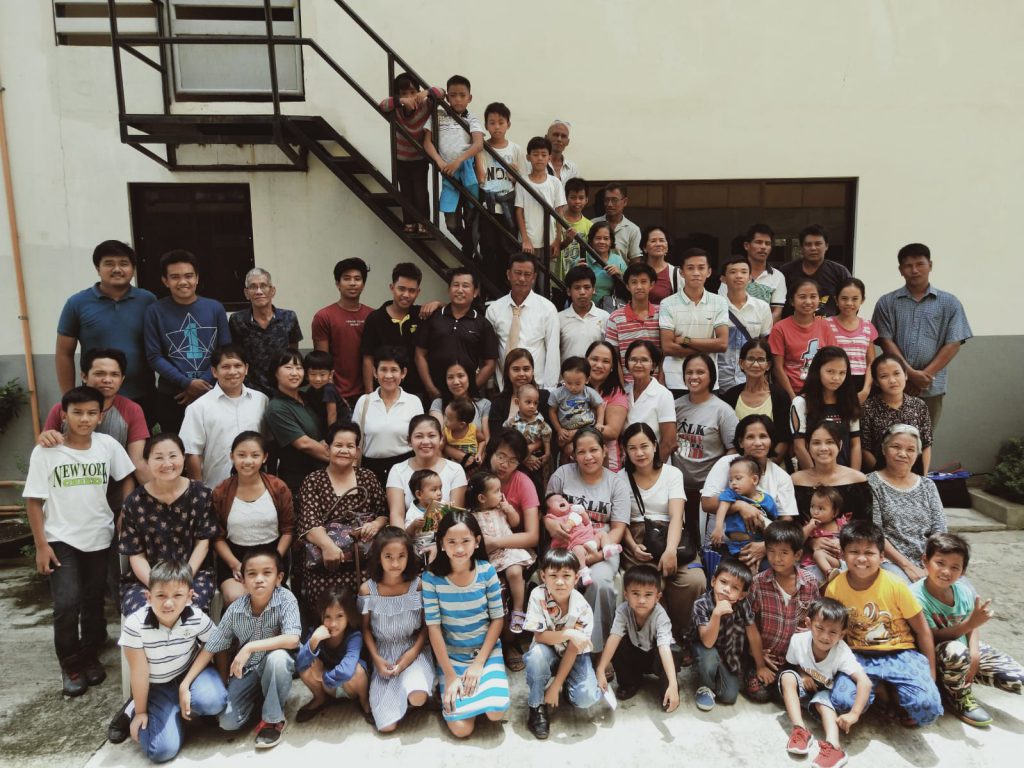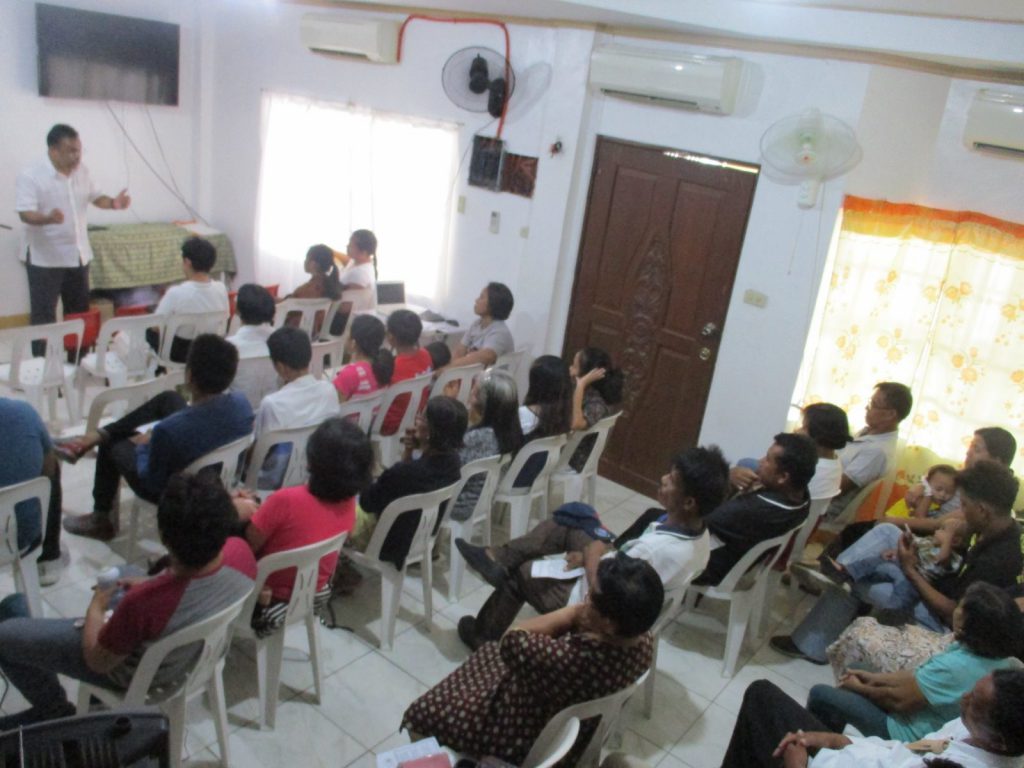(In the coming weeks, we will be publishing the testimonies of bethren who will be joining the church. May their testimonies bring joy to our hearts and praise to the Lord.)
Shaun Ng
Although I was born to Christian parents, church life and reading of the Bible were not present in my earlier years. My parents were not regular churchgoers, and whilst they did tell me about Jesus since I was a child, I was surrounded by most of my extended family, who were non-believers.
When I was in primary school, I went around telling my friends that I was a Christian. However, being in the minority, I would shy away once my friends started talking about how similar other religions were. I thank God that there was one Christian classmate of mine who invited me to the Vacation Bible School (VBS) at Maranatha BP Church when I was 9 years old. My dad brought me to the VBS, and that was the first time that I was truly amongst Christian brethren and in a proper church setting. About a year later, my parents met with a serious car accident. They saw the accident as a wake-up call from the Lord, and the Lord moved them to want to attend church regularly again. Due to my VBS connection with Maranatha BP Church, my dad got to know some brethren there, and so decided to visit the church, and we began worshipping there regularly as a family.
In the initial years, church to me was more of a routine, and honestly, I was there more for the social aspect. I did attend the various Bible classes, and it enabled me to grow in my knowledge of the Word. My parents also started regular family worship at home. When I was 15, I started serving in the YF committee, whereby God moulded me and enabled me to enter into a deeper relationship with Him. I did my quiet time regularly and grew in my faith. The Holy Spirit instils in my heart a passion for His Word and a desire to please Him in my life. This translated to me becoming more disciplined in my studies and my spiritual walk.
Since then, I thank God that He has kept me close to Him and enabled me to serve Him in many ways, and God used these opportunities to serve Him to develop and hone my spiritual gifts. Over the years, God gave me the wisdom and strength to serve in various ministries and eventually to become a deacon in the church. He has also provided me with a godly wife, Yu Wei, who constantly encourages me and serves along with me; now we are parents of two children, Christian and Christie-Ann.
We thank God for bringing us to Gethsemane BP Church in August 2018. Though we came over initially due to certain leadership issues that troubled our previous church, we thank God for moving in His own way to bring us to Gethsemane. Over the last year, we benefited exceedingly from the faithful preaching of God’s Word by Pastor Koshy and the various preachers. The highest emphasis on the Word of God reminds us why we have been called Bible-Presbyterians in the first place. We have grown in our knowledge of the Word. Our 2 young children also benefitted spiritually from the junior worship, VBS and Church Camp. We are also blessed by the hand of fellowship extended to us by both the Church Session and brethren, which helped us settle in quickly.
One thing that stood out at Gethsemane is God’s blessing of godly leaders whom He has put in place to take oversight of the church – leaders who not only uphold the truth of God’s Word but live it out through their conduct. It is my prayer that God will continue to preserve the leaders of the church from the attacks of the evil one, and that they will continue to be faithful to the Lord and His Word.
I look forward to joining the Gethsemane BP Church as a family, and it is my prayer that we will also be actively serving the Lord together as a family, till the Lord returns. "And whatsoever ye do, do it heartily, as to the Lord, and not unto men; Knowing that of the Lord ye shall receive the reward of the inheritance: for ye serve the Lord Christ" (Colossians 3:23-24). Soli Deo Gloria!
Lee Yu Wei
I had attended Calvary Pandan BP Church regularly with my family since I was 5 years old. We were introduced to this church when my elder brother joined Calvary Pandan kindergarten. I was gradually exposed to the doctrines of the church through the various ministries like Junior Worship, Teenz & Youth Fellowship. My parents would consistently encourage me to participate in the other activities like camps, DVBS, Sunset Gospel Hour and Fundamental Christian Ministry. Unlike many people, I did not have a specific or eventful turning point when I accepted Christ. I like to think that my faith was built up over time through the hearing of God’s Word from the pulpit, during church activities and personal devotions. I am certain that God has regenerated my heart, as evidenced by my desire and the necessity to read His Word / pray daily.
When I was in Primary 4, my mother introduced a rule: that to have breakfast, I had to do my quiet time and read the "Read, Pray, Grow" devotional booklet. Initially, I would do it merely to satisfy my hungry stomach, and as time passed, it became a daily routine. But thank God, now I have a desire to have my life led by God’s Word, even His will, and not by my willful desires. I have learned that it can be achieved only through having close communion with God by reading His Word, as well as by praying for sanctification and spiritual direction in my life. Since God is perfect in His being and His attributes, I believe that His Word is also perfect. Otherwise, it will rock the very fundamentals of my Christian beliefs and trust in God!
The year when I got married, I transferred my membership to my husband’s church. But now, due to the differing stand of the church, we decided to transfer to Gethsemane BP Church. The primary reasons for our choice are Gethsemane’s belief in the Westminster Confession of Faith and adherence to the Presbytery structure. Furthermore, we have witnessed a strong emphasis on the Bible all across the various ministries, even in the children programmes (which is important to us as we have two young growing kids). We also like the preaching of God’s Word, which addresses not just doctrines but also practical examples which we can relate to. After listening to Pastor’s preaching, we know how to apply God’s Word to our personal life. There is also time allocated for the explanation of memory verses and even singing of Bible verses, that we may hide God’s Word in our hearts.
I sincerely pray that we can grow with the church, serve in the church and glorify God in our lives.




